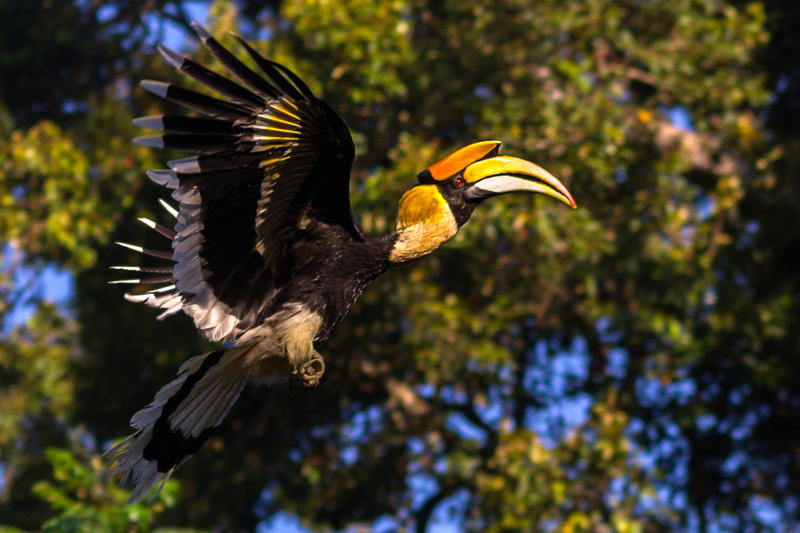|
| Query: bucerotidae | Result: 86th of 121 | |
great hornbill (Buceros bicornis) male
| Subject: | great hornbill (Buceros bicornis) male
| | Poster: | Wiki Photos (---@---.---)
| |

| Resolution: 960x640
File Size: 518351 Bytes
Date: 2013:03:03 08:39:16
Camera: Canon EOS 7D (Canon)
F number: f/5.0
Exposure: 1/1000 sec
Focal Length: 150/1
Upload Date: 2017:03:03 04:00:27
|
Description
English: A male on flight, Western Ghats, India
Date 3 March 2013, 08:39:16
Author Navaneeth Kishor
Source: https://commons.wikimedia.org/wiki/File:Great_Indian_Hornbill_Buceros_bicornis.jpg
The great hornbill (Buceros bicornis) also known as the great Indian hornbill or great pied hornbill, is one of the larger members of the hornbill family. It is found in the Indian subcontinent and Southeast Asia. Its impressive size and colour have made it important in many tribal cultures and rituals. The great hornbill is long-lived, living for nearly 50 years in captivity. It is predominantly frugivorous, but is an opportunist and will prey on small mammals, reptiles and birds.
Order: Bucerotiformes
Family: Bucerotidae
Subfamily: Bucerotinae
Genus: Buceros
Species: Buceros bicornis Linnaeus, 1758
Synonyms:
Buceros homrai
Dichoceros bicornis
Buceros cavatus
Homraius bicornis
|
Comments |
|---|
| | Guest |
|
Scientific Name: Buceros bicornis Linnaeus, 1758
Common Names: Great Hornbill, Great Pied Hornbill
French: Calao bicorne German: Doppelhornvogel Spanish: Cálao bicorne
Taxonomy: Buceros bicornis Linnaeus, 1758, Bengkulu, Sumatra. |
^o^
Animal Pictures Archive for smart phones
^o^
|
|
|

